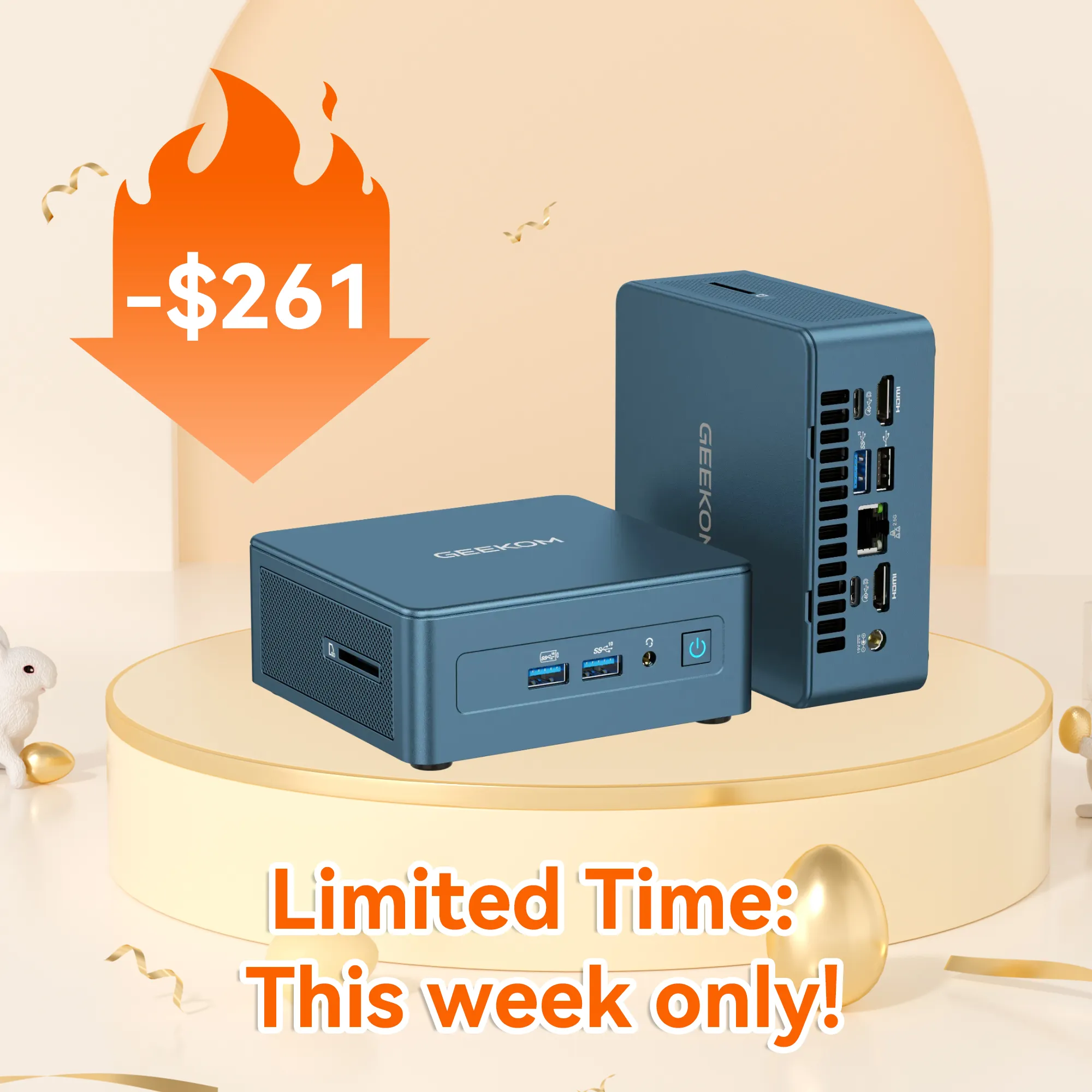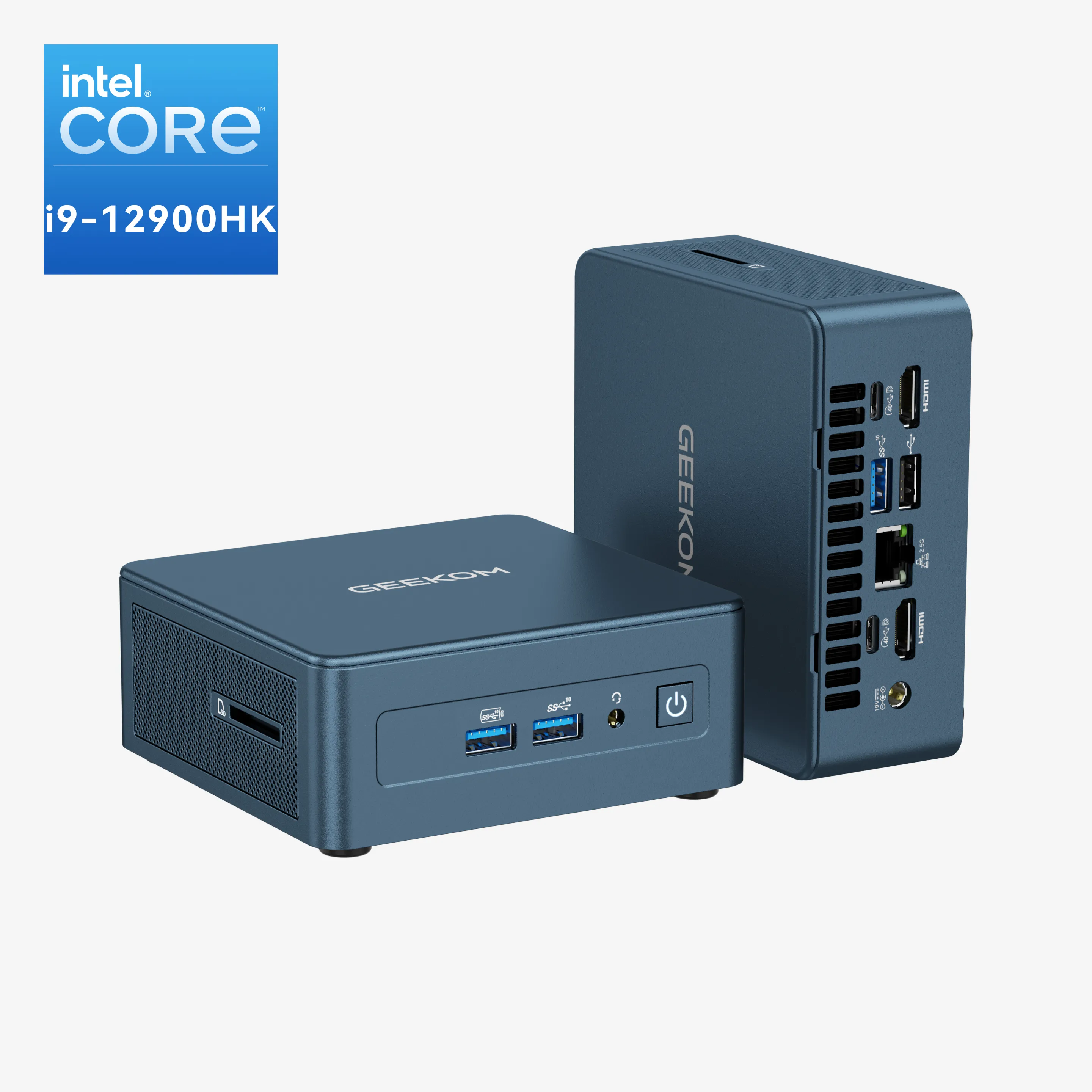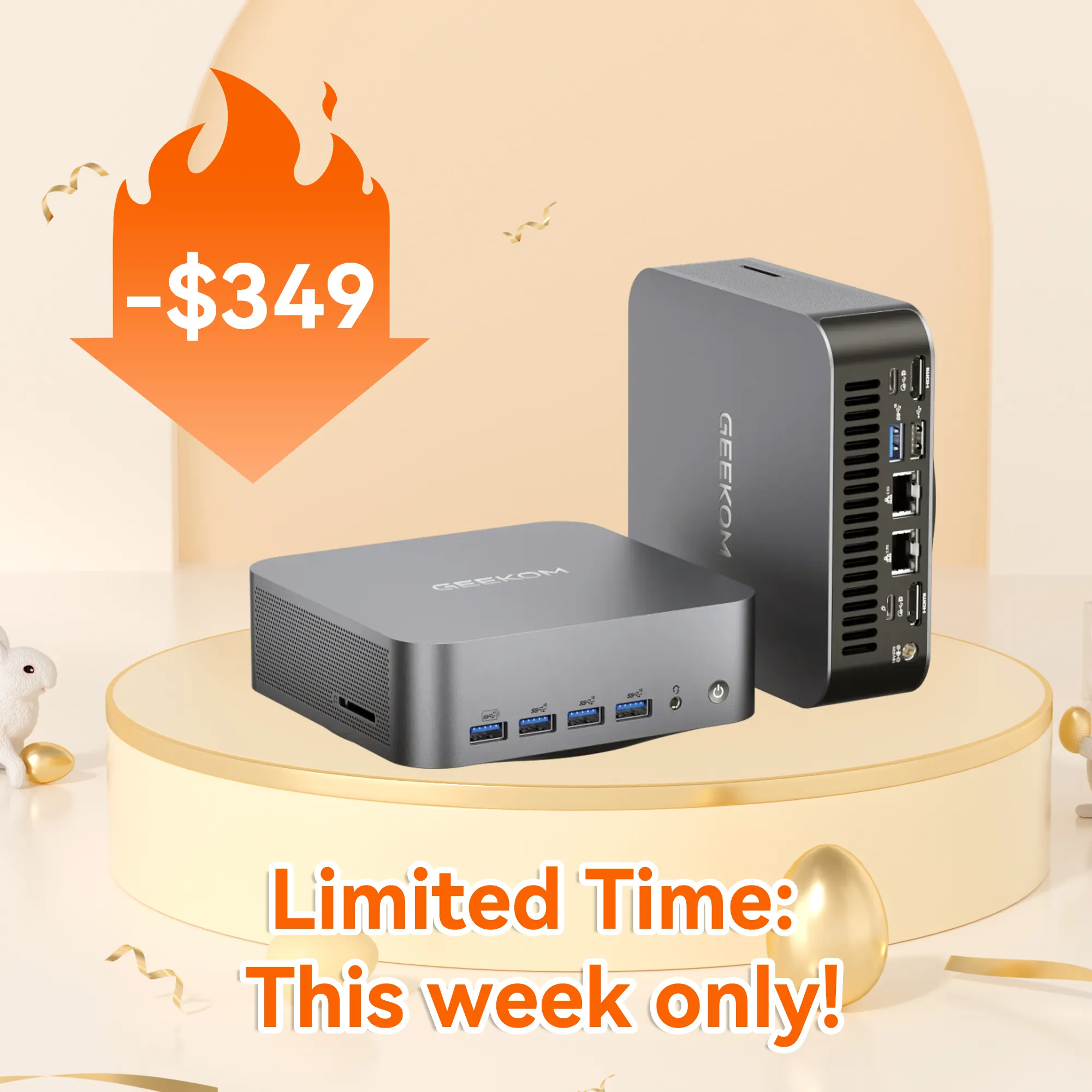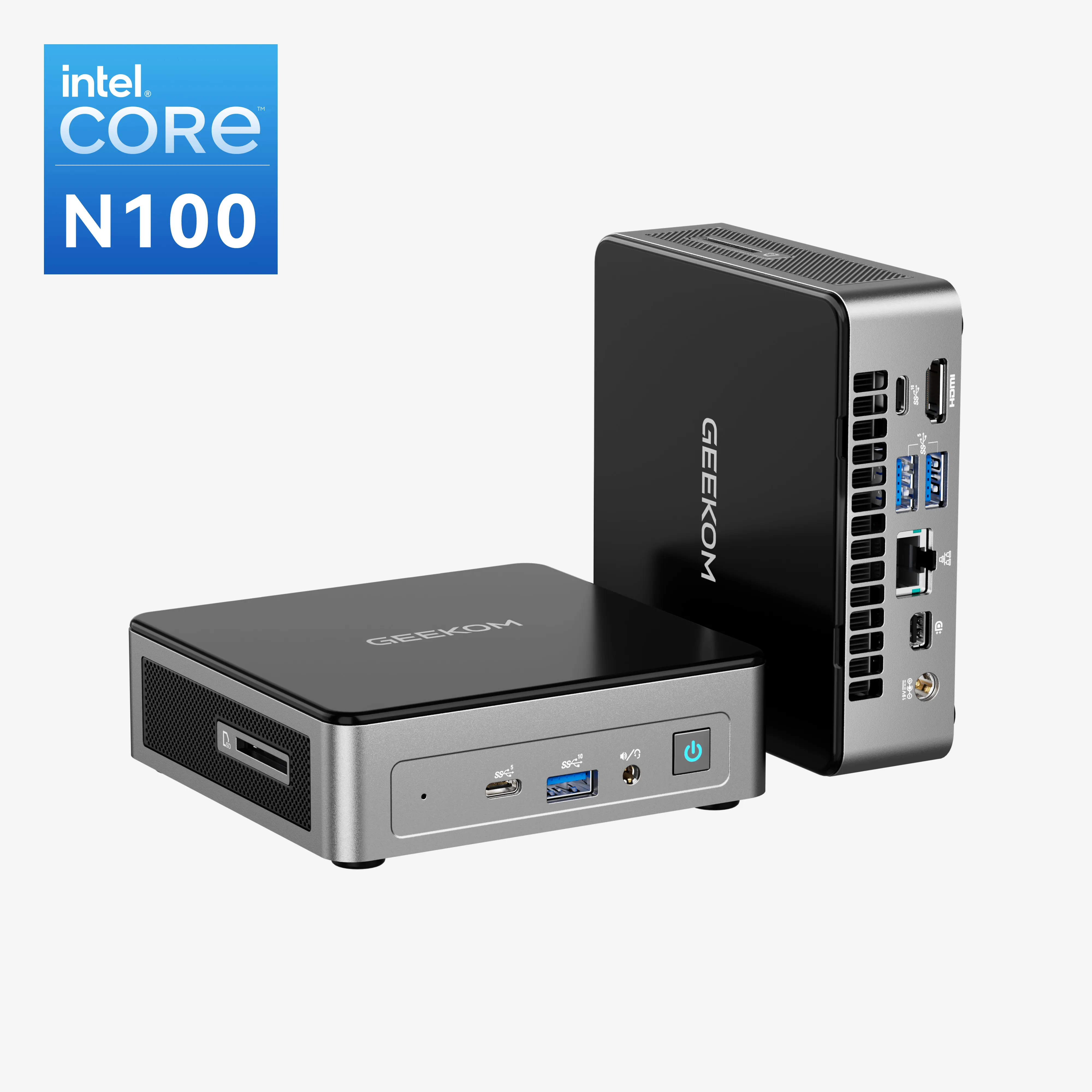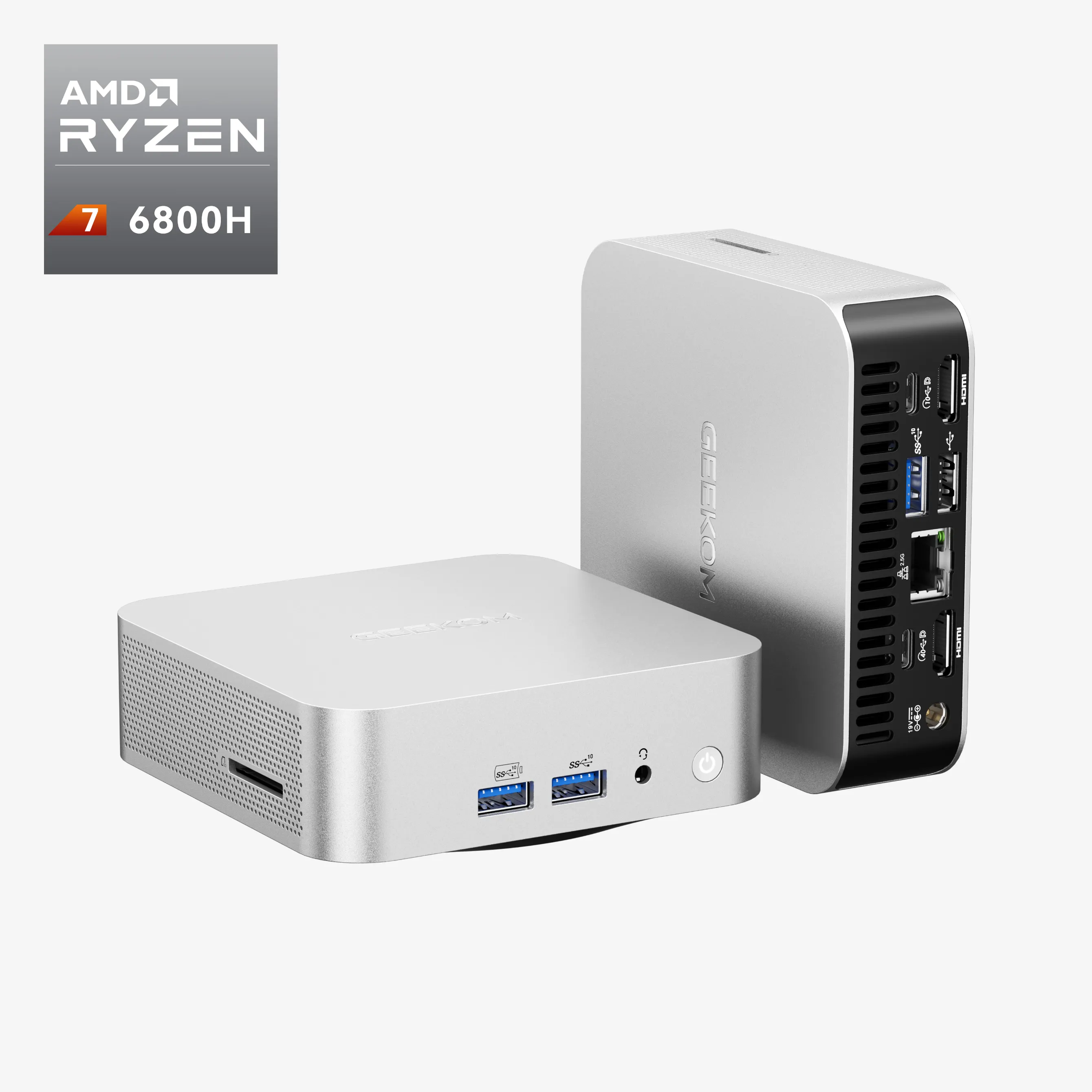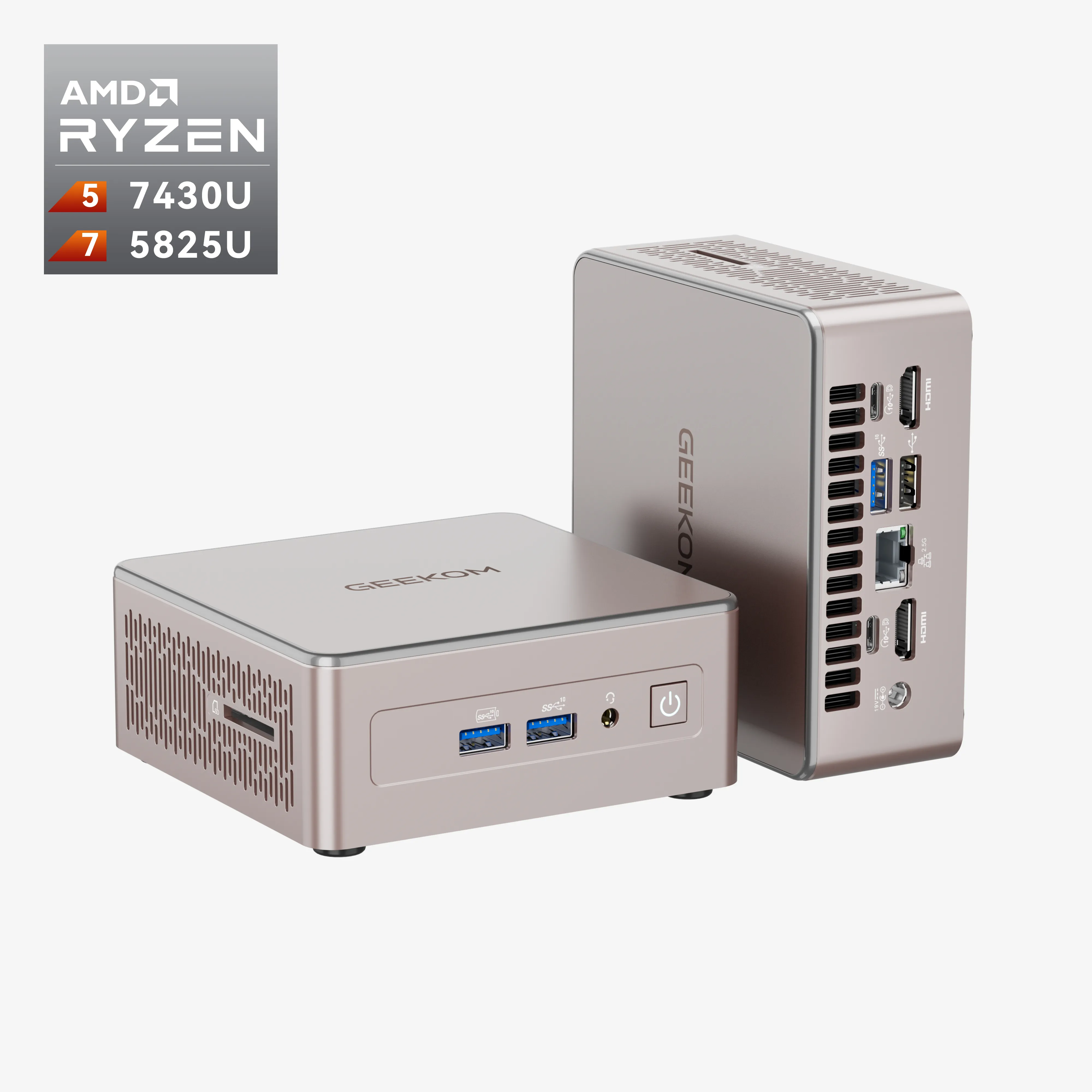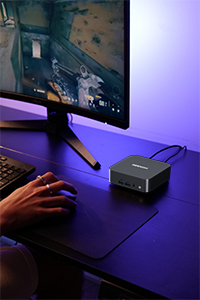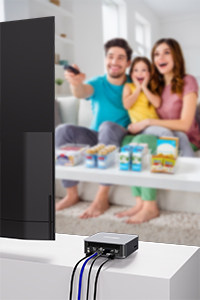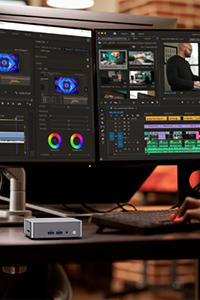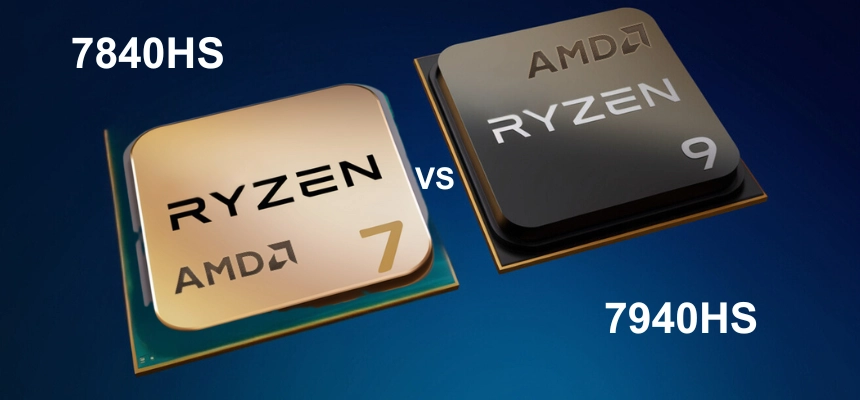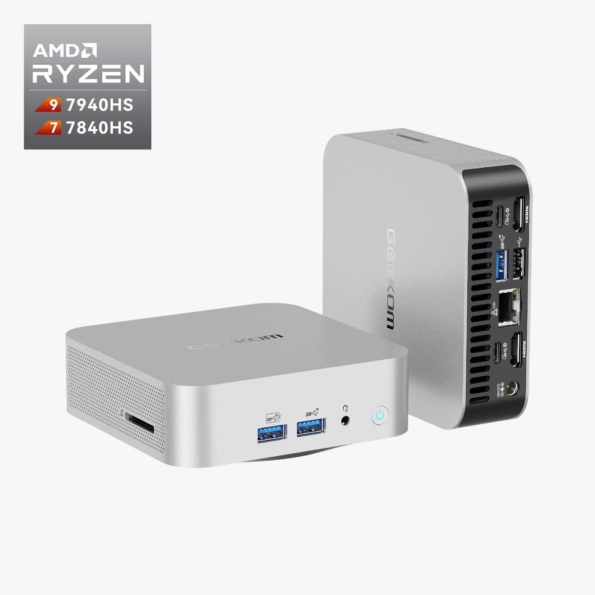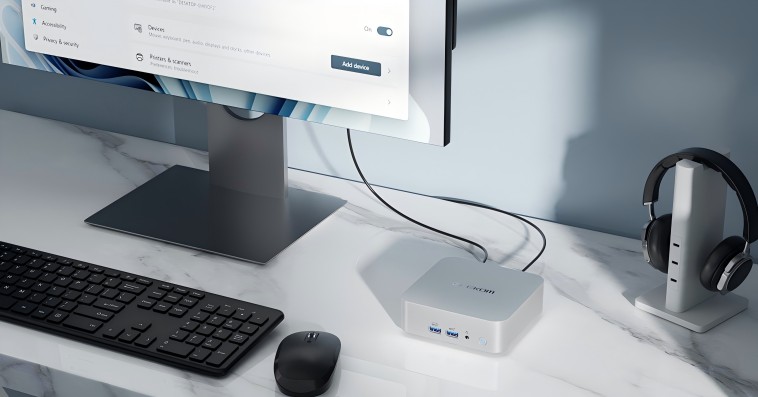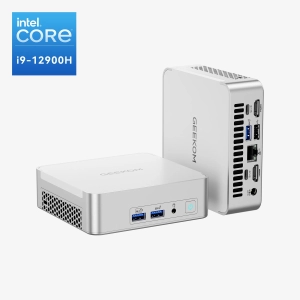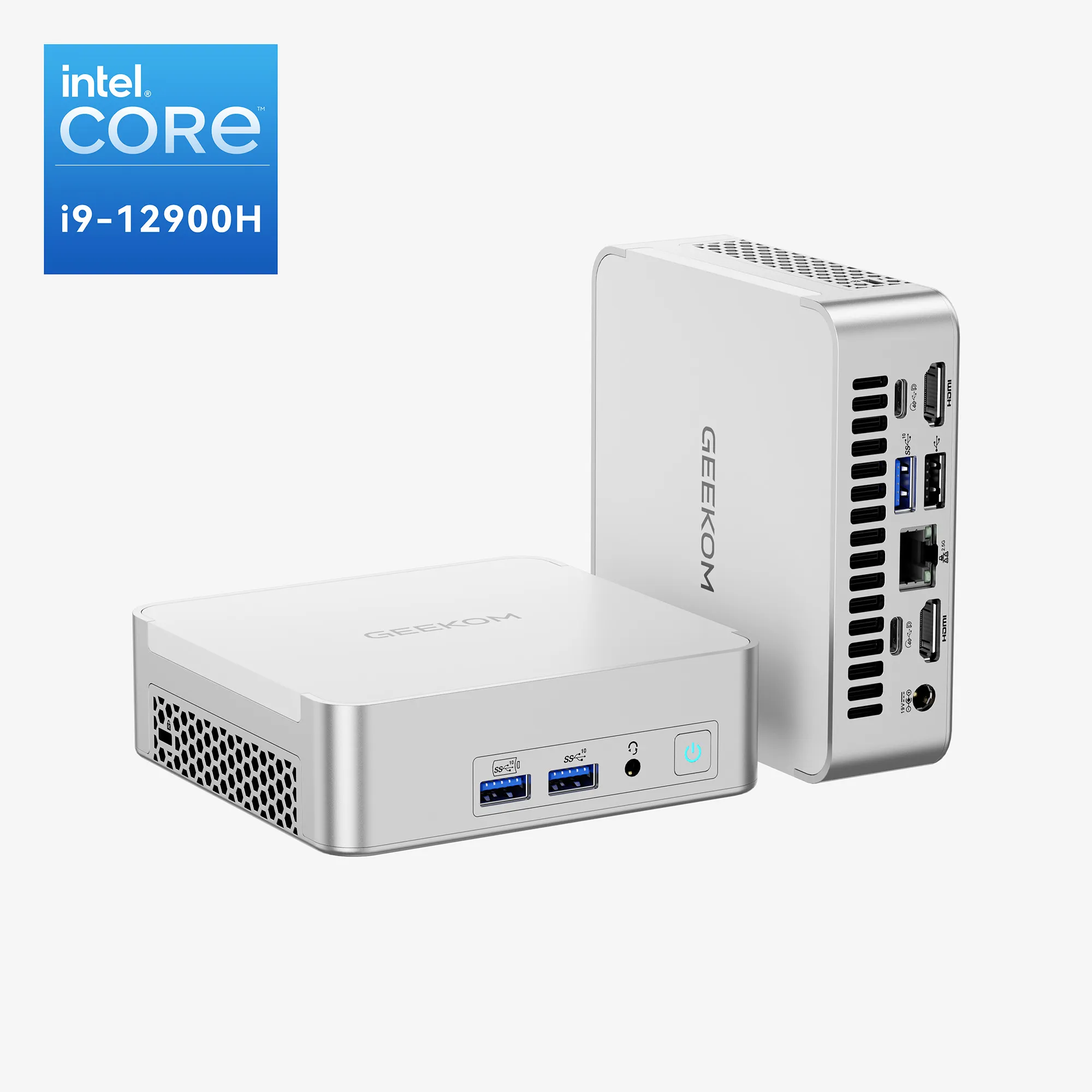Introduction
The fast-accelerating field of computing suggests that a CPU’s choice could affect the full performance of your system for gaming, digital content creation, or heavy multitasking. In AMD’s latest offerings are two dynamic processors packed with performance: the Ryzen 7 7840HS and the Ryzen 9 7940HS, ideal for moving through numerous resource-hogging applications.
This article presents a comparison between AMD’s Ryzen 7 7840HS and Ryzen 9 7940HS. This involves a discussion of the architecture of both, the number of CPU cores and threads, clock speed, power consumption, integrated graphics, memory support, price, and performance comparison so that one can choose the CPU based on requirements. Understanding the difference between these two CPUs would be more than useful to a gamer, content creator, or professional multitasker can purchase based on this difference.
7840HS Vs 7940HS: Architecture And Technology
The AMD Ryzen 7 7840HS and Ryzen 9 7940HS are the latest CPU technology from AMD. They are advanced, featuring the most cutting-edge technology aimed towards high performance and efficiency.
The AMD Ryzen 7 7840HS is built on the Zen 4 microarchitecture that adopts the 5 nm manufacturing process. It helps obtain extreme transistor density because of advanced process technology. This means better performance with lower power dissipation. Compared with previous processors, the 5-nm processor will be the best in terms of power-to-performance tradeoff. This makes it suitable for portable devices where battery life is extremely valuable. The rest of the optimizations including core design will help a lot in real-world applications like gaming, content creation, and multitasking.
Also built on the Zen 4 microarchitecture, the Ryzen 9 7940HS uses the same 5nm manufacturing process as the Ryzen 7 7840HS. However, while the Ryzen 7 7840HS is a mid-range chip, the Ryzen 9 7940HS is pitched as the high-end within AMD’s line, consequently, with some performance punch. This solution brings even more cores-and-threads configuration, which will be more suitable for other performance-hungry, multitasking applications. The higher base and boost clock speeds directly lead to better multi-core and single-core performance with the Ryzen 9 7940HS, although all the power is directed towards the increased multi-threaded operations suited for high workloads.
What Is The Difference Between 7940HS And 7840HS?
Here’s a detailed comparison of the key specifications between the AMD Ryzen 7 7840HS and the AMD Ryzen 9 7940HS:
| Specification | AMD Ryzen 7 7840HS | AMD Ryzen 9 7940HS |
| Architecture | Zen 4 | Zen 4 |
| Manufacturing Process | 5nm | 5nm |
| Cores/Threads | 8 cores / 16 threads | 8 cores / 16 threads |
| Base Clock Speed | 3.8 GHz | 4.0 GHz |
| Boost Clock Speed | 5.0 GHz | 5.2 GHz |
| TDP | 35W | 45W |
| Integrated Graphics | AMD Radeon™ Graphics | AMD Radeon™ Graphics |
| Memory Support | Up to 64GB DDR5 | Up to 64GB DDR5 |
| Connectivity | Wi-Fi 6E, Bluetooth 5.2 | Wi-Fi 6E, Bluetooth 5.2 |
Core And Thread Count
Both run with 8 cores and 16 threads, both chips share the same Zen 4 architecture. With this core and thread configuration, a multithreading workload runs quite well on the CPUs. Both could handle parallel-worthy workloads due to ample cores and multiple threads. However, the Ryzen 9 7940HS is marketed as a more premium option slightly improved version that is better catered to some high-end applications.
The Ryzen 7 7840HS, with its efficiency in core designs, is good for performing the workload that cleverly combines single-core with multi-core performance-based needs. It could, however, favour tasks such as gaming and light content creation, whereby snappy and smooth performance in single-threaded applications is necessitated. Compared to this Ryzen 9 7940HS, being clocked at higher base and boost frequencies, is for processing users who seek an above-average performance in single-threaded and multi-threaded workloads. It suits demanding workloads, such as video editing, 3D rendering, and heavy multitasking, allowing greater work levels to be dealt with properly due to processing power capable of reducing wait time and improving efficiency.
Clock Speeds And Performance
The AMD Ryzen 7 7840HS has a base clocking speed of 3.8 GHz, with a max boost frequency of 5.0 GHz. This setup offers a healthy performance level for everyday tasks and gaming, assuring responsive and smooth performance from a variety of applications. The boost clock means the processor can use its high performance in bursts, where workloads demand such performance, thus being fit for more demanding tasks reliant on bursts.
In comparison, the AMD Ryzen 9 7940HS has a higher base clock of 4.0 GHz with a terrific boost clock of 5.2 GHz. Thus, it offers more performance under intensive applications when maximum single-core performance matters the most. The better boost clock speed ensures that it is capable of handling the hardest things thrown at it without breaking a sweat, thus providing a noticeable performance advantage over the Ryzen 7 7840HS.
Power Consumption And Thermal Management
The AMD Ryzen 7 7840HS, with a TDP of 35W, is designed for power efficiency, making it ideal for portable devices where heat dissipation and battery life are crucial. The 5nm manufacturing process contributes to reduced power consumption, resulting in less heat generation and extended battery life. This efficient power usage also means that less energy is wasted as heat, keeping system temperatures lower and reducing the need for heavy cooling solutions.
The AMD Ryzen 9 7940HS, with a TDP of 45W, offers more performance at the expense of higher power consumption. While it still benefits from the 5nm manufacturing process, the higher TDP indicates that it may generate more heat and require more robust cooling solutions, particularly under heavy loads. However, this trade-off provides users with superior performance for demanding applications, making the Ryzen 9 7940HS suitable for high-performance laptops and desktops where power and thermal management can be more effectively controlled.
Memory Support And Compatibility
Both the AMD Ryzen 7 7840HS and Ryzen 9 7940HS support DDR5, topping out at 64GB, and with enough memory bandwidth for even the most memory-hungry applications. It further provides the two CPUs ease in working with video editing, 3D rendering, and big database operation tasks, thus providing a fast data access response time and a reliable multitasking mechanism.
Longer perspective operational life, equipping it with readiness for the new breed of high-memory-demanding applications, allows the DDR5 pitch for both processors. With the empowering and controlling presence of memory in these CPUs, large data sets and difficult applications are passed through as a hot knife through butter, their capability makes them worthy of tasks that are memory intensive and programmed mainly for professionals and power users.
Gaming Performance With Integrated Graphics
Both of these processors exhibit quite strong gaming performance, with integrated graphics included. Here is a brief comparison of their performance results in a couple of extremely popular lightweight games tested at 1080p resolution on medium to low settings to deliver playable frame rates.
| Game | AMD Ryzen 7 7840HS (Radeon™ Graphics) | AMD Ryzen 9 7940HS (Radeon™ Graphics) |
| Fortnite | 55 FPS | 60 FPS |
| Valorant | 90 FPS | 95 FPS |
| League of Legends | 110 FPS | 115 FPS |
| CS:GO | 80 FPS | 85 FPS |
| Minecraft | 70 FPS | 75 FPS |
| The Witcher 3 | 38 FPS | 42 FPS |
The AMD Ryzen 7 7840HS with Radeon™ Graphics is capable of sporting impressive performance in most lightweight games, consistently running them securely at playable frame rates at 1080p with medium to low settings. Fortnite, Valorant, and League of Legends run perfectly, which is great for any gamer, but in this case, those who will benefit more from embedded graphics.
The AMD Ryzen 9 7940HS with Radeon™ Graphics propels this further. It takes the most minutes, across all tested games, to render a significant difference, thus, providing an even smoother gameplay experience. Ideal for gamers who seek top performance on integrated graphics while leaving behind their decorum.
AMD Ryzen 7 7840HS Vs AMD Ryzen 9 7940HS: Benchmark Scores
To provide a clear comparison of the performance between the AMD Ryzen 7 7840HS and Ryzen 9 7940HS, here are the benchmark scores for various tests:
| Benchmark | AMD Ryzen 7 7840HS | AMD Ryzen 9 7940HS |
| Cinebench R23 (Single-Core) | 1,688 | 1,796 |
| Cinebench R23 (Multi-Core) | 14,320 | 15,210 |
| Geekbench 5 (Single-Core) | 1,857 | 1,974 |
| Geekbench 5 (Multi-Core) | 11,334 | 11,600 |
| PassMark (CPU Mark) | 28,912 | 30,371 |
How To Choose AMD Ryzen 7 7840HS Or Ryzen 9 7940HS?
It is important to clearly outline the applications and specific needs that should be taken into account before deciding on a processor.
Single-threaded performance matters a lot for users like game enthusiasts or those using slightly optimized applications. Here, the AMD Ryzen 9 7940HS wins hands down. It has busted a higher single-core score on several platforms and thus would be at stake in cases where single-core performance is on top of the priority list. The higher turbo boost at core speed ensures better performance of the Ryzen 9 7940HS in terms of delivering good single-threaded work.
For tasks such as video editing, 3D rendering, and large data processing that require high multi-threaded performance, AMD Ryzen 9 7940HS comes to the rescue. Its significantly higher multi-core scores in Cinebench R23 and Geekbench 5, as well as a much greater PassMark CPU Mark, signal that it can handle heavy lifting with ease. The Ryzen 9-7940HS is thus the gold standard for computer-aided design and highly creative tasks that need extensive parallel computing power.
★★★★★ ( 5.0 Based on 24 reviews)
- AMD Ryzen 9 7940HS or Ryzen 7 7840HS.
- AMD Radeon Graphics 780M.
- Dual-channel DDR5 5600MT/s, up to 64GB.
- M.2 2280 PCIe Gen 4 x 4 SSD, up to 2TB.
- Wi-Fi 6E and Bluetooth 5.2.
- Stunning minimalistic design. 0.47L aluminium housing.
The AMD Ryzen 7 7840HS is an option if one seeks a CPU offering balanced single-core and multi-core performance. Although a touch lower than the Ryzen 9 7940HS in benchmark scores, decent enough performance for variety-minded games is ensured. The AMD Ryzen 7 7840HS thrives in the arena of computer games and light content creation, as lower power consumption and heating management affect portable devices’ continuous working.
In conclusion, choose the AMD Ryzen 9 7940HS if demanding applications are paramount to you and you’re willing to spend the extra; its leading benchmark scores are a sure bet for top-shelf performance at both single-core and multi-core tasks. On the flip side, should you favour a well-balanced CPU that provides solid performance at a relatively more palatable price, then the AMD Ryzen 7 7840HS is truly an enticing contender. Providing really good performance, this CPU is a clear option for gamers and general-use fitting, reflecting its flexible processing nature to a reasonable range of user needs.



